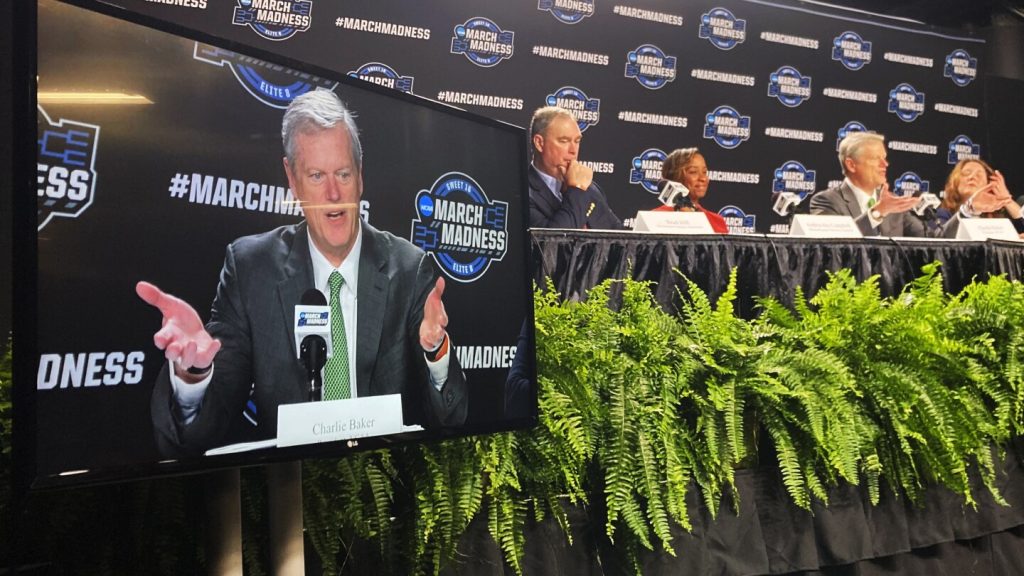Massachusetts officials, including former Gov. Charlie Baker and NCAA President, are teaming up to address the public health concerns associated with sports gambling among young people. This initiative aims to combat the pressure faced by student athletes from both bettors and classmates, who often inquire about individual performances and betting odds. The increased legalization of sports betting has created a need for states to prioritize the safety of their young population, especially given the prevalence of smartphone gambling. In response, Massachusetts has established the Youth Sports Betting Safety Coalition, which includes major sports teams and organizations, to develop educational programs for youth between the ages of 12 to 20.
One of the main goals of this coalition is to provide targeted education, training, and safety measures for young individuals who are at risk of engaging in sports betting. NCAA data has shown that a significant percentage of young adults between the ages of 18 to 22 have participated in sports gambling activities. Additionally, the Massachusetts Department of Public Health has found that a substantial number of middle school students have also dabbled in various forms of gambling. To address these concerning trends, the coalition plans to work with key stakeholders in the sports industry to provide resources and support for young people who may be vulnerable to the negative effects of sports betting.
A key concern raised by Baker and other officials is the issue of “prop bets,” which allow gamblers to wager on specific player statistics rather than the final game score. The prevalence of prop bets has raised alarm bells, as it can lead to increased harassment and pressure on student athletes to perform to meet the expectations of bettors. The coalition aims to work with state governments to regulate and monitor these types of bets to protect young athletes from exploitation and manipulation. Additionally, the coalition is focused on creating a safe and responsible gambling environment for all individuals, especially those under the age of 21 who are legally prohibited from participating in sports betting activities.
The impact of sports gambling on student athletes has been particularly concerning, with reports of athletes being harassed and threatened by bettors. This issue has escalated to the point where NCAA officials have had to provide police protection to teams facing serious threats during tournaments. The intensity and violence of some of these interactions on social media platforms have raised red flags about the safety and well-being of student athletes. By addressing these challenges head-on through initiatives like the Youth Sports Betting Safety Coalition, Massachusetts officials hope to protect young individuals from the harmful effects of sports gambling and create a more positive and supportive environment for student athletes to thrive.
Baker emphasized the need for a concerted effort to address the challenges posed by the rapid expansion of sports gambling in the U.S. He highlighted the importance of collaboration between public and private entities to create effective strategies for educating young people about the risks and consequences of sports betting. By engaging with major sports organizations and teams, the coalition aims to leverage the influence and reach of these entities to promote responsible gambling practices and foster a culture of safety and well-being for young individuals. This comprehensive approach reflects a growing recognition of the need to proactively address the public health concerns associated with sports gambling, particularly among vulnerable populations such as student athletes and young adults.
Overall, the announcement of the Youth Sports Betting Safety Coalition represents a significant step towards addressing the complex and multifaceted challenges posed by sports gambling among young people. By bringing together key stakeholders from the sports industry, government, and public health sectors, Massachusetts officials are demonstrating a commitment to safeguarding the well-being of youth and promoting responsible gambling practices. Through targeted education, training, and safety measures, the coalition aims to empower young individuals to make informed decisions and protect themselves from the negative impacts of sports betting. As the landscape of sports gambling continues to evolve, initiatives like this will play a crucial role in shaping a safer and more supportive environment for student athletes and young people across the country.















